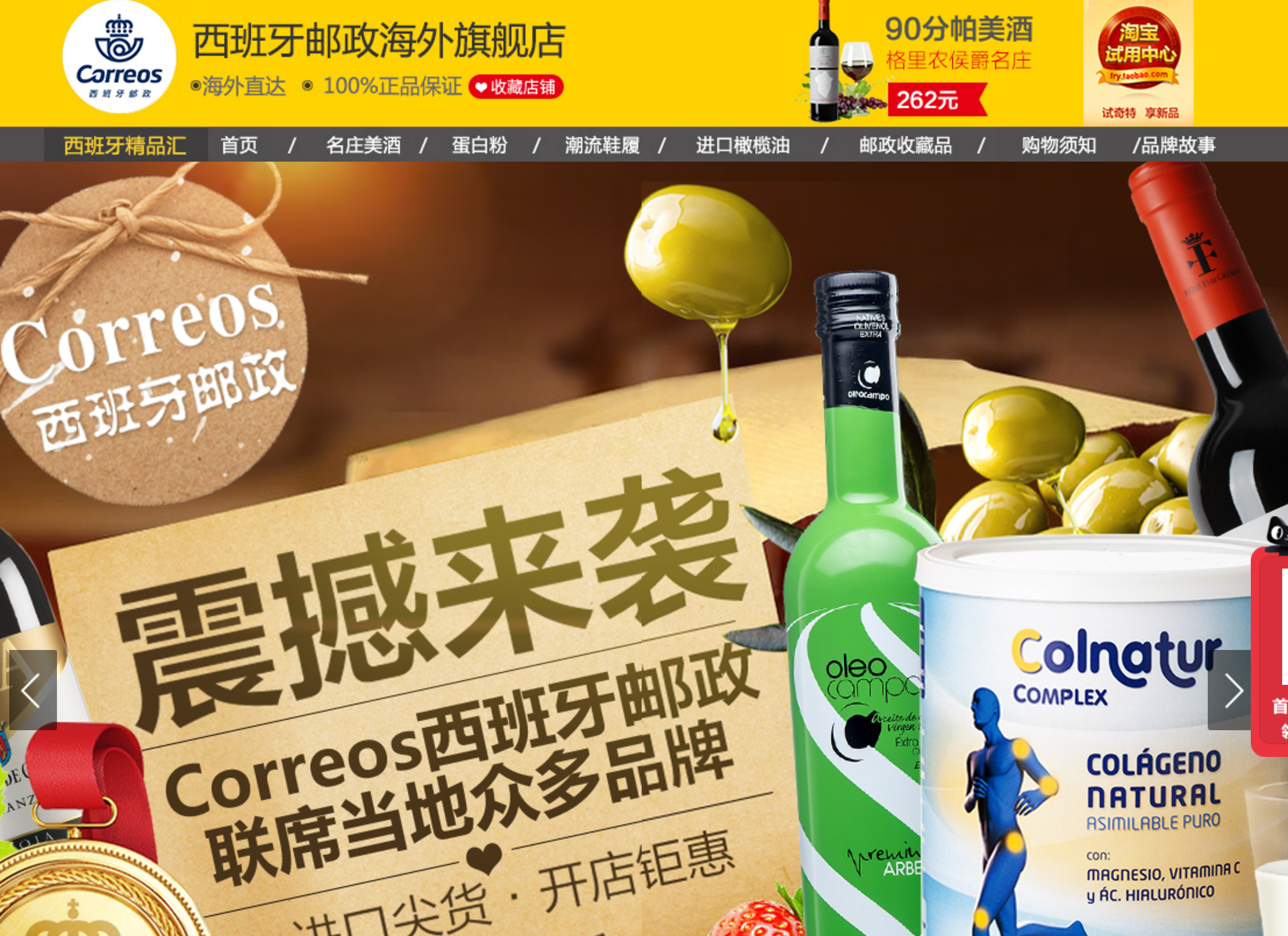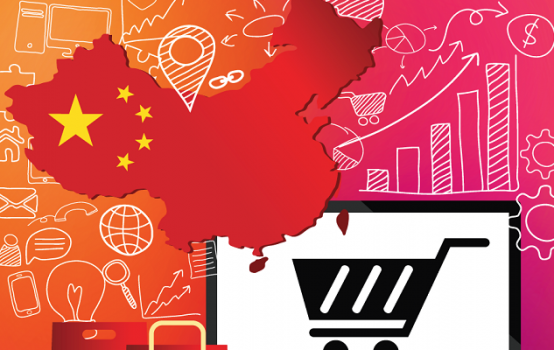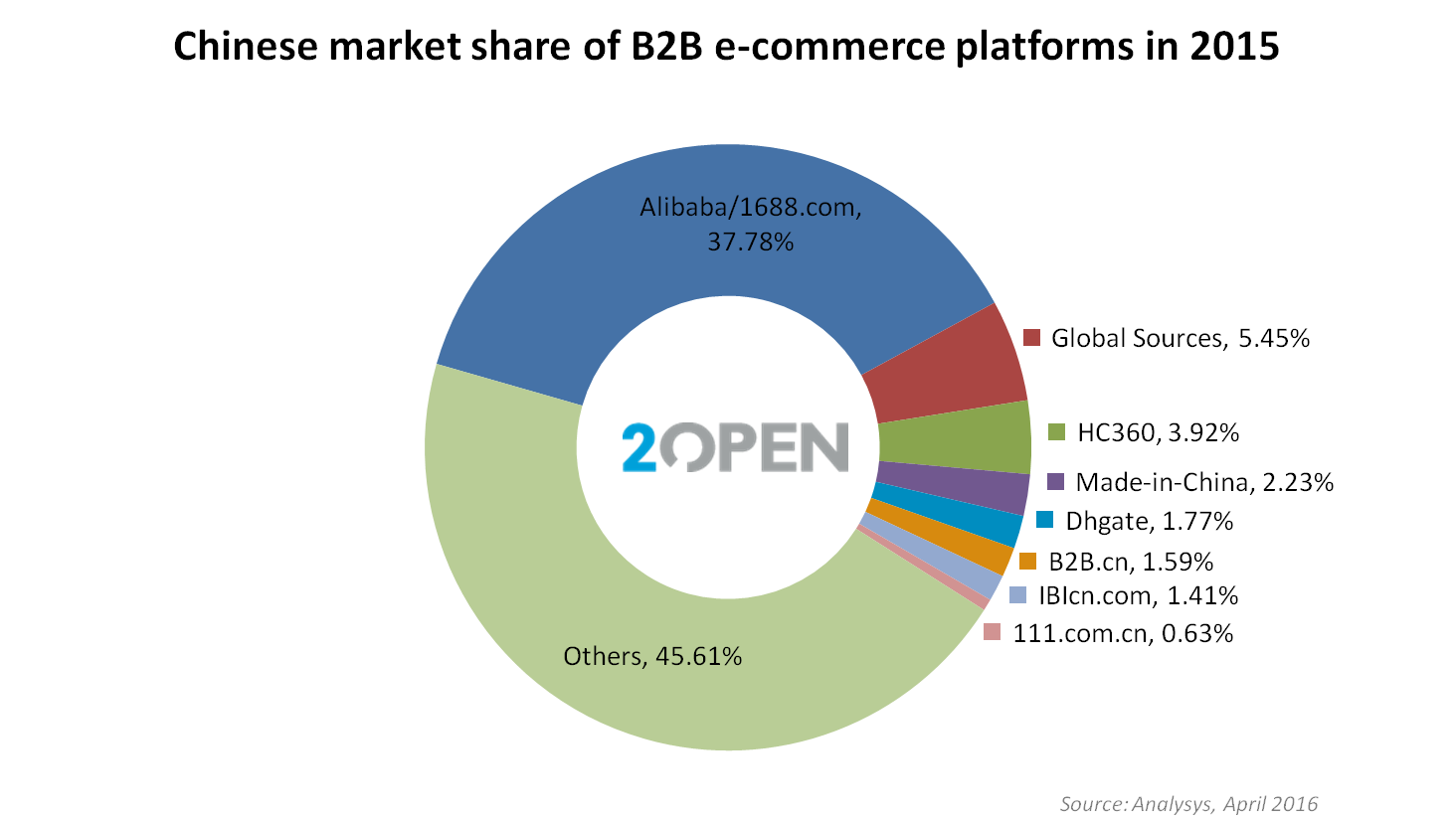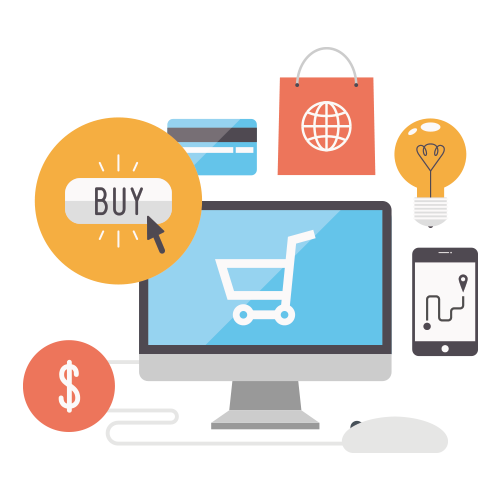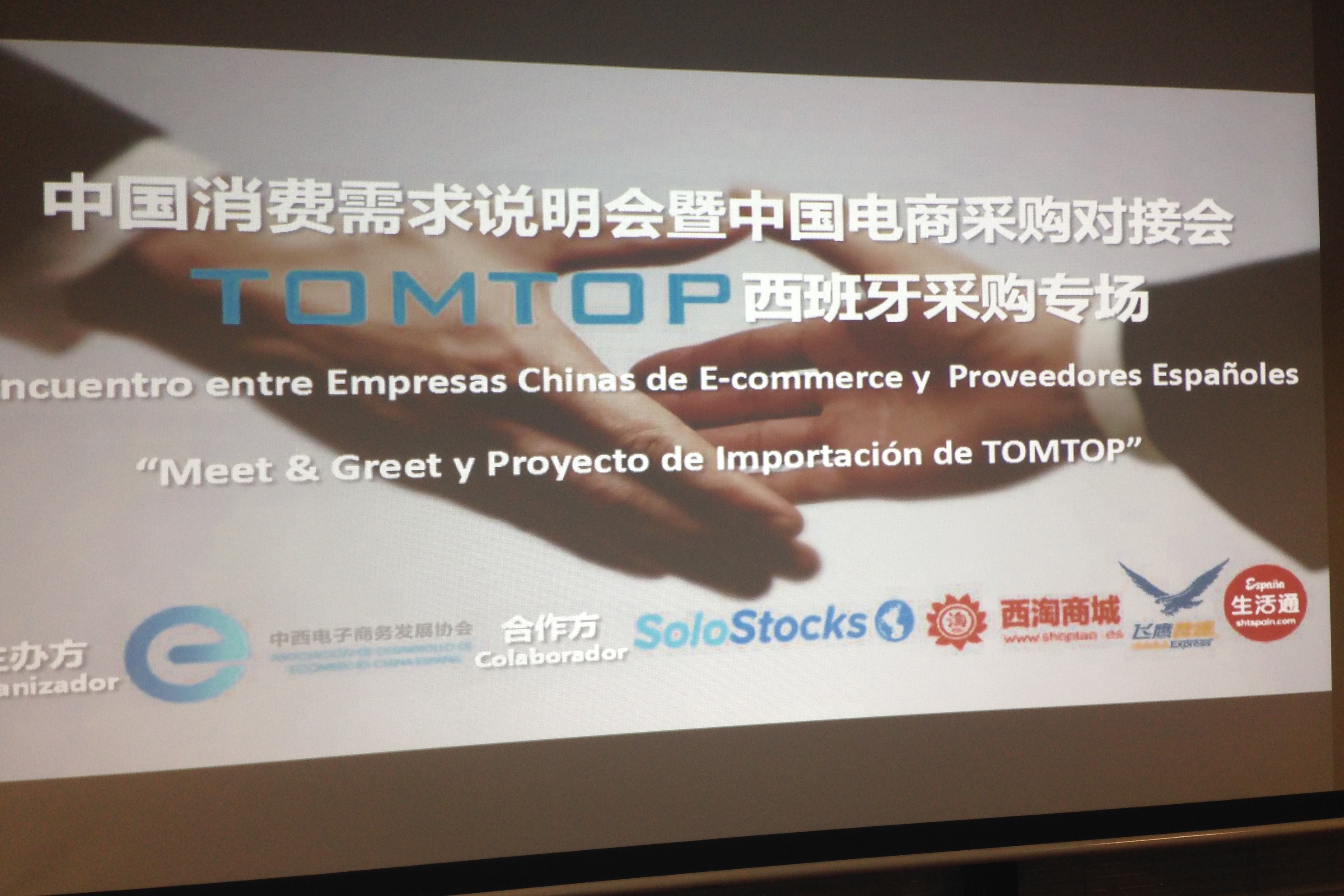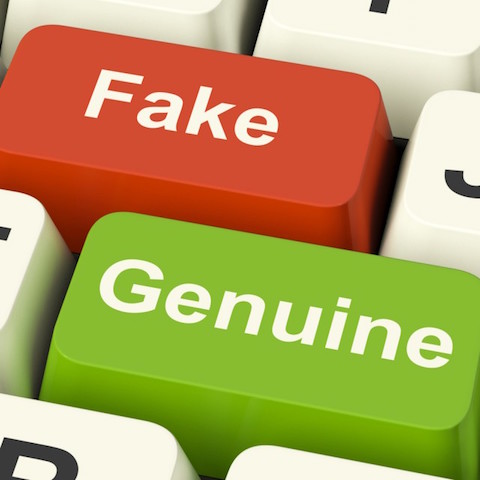Olive oil from Spain directly sold and shipped to China consumers (Tmall Global)
After the grand opening of Correos cross-border shop on Tmall global in June, our team did a purchase and tested the shopping experience. Here, we will share what is it like to purchase in Correos cross-border shop:
First of all, the brands sold in Correos shop are mainly famous local Spanish brands and have not registered in China yet. Therefore, these brands joined together and sell to Chinese customers in this novel model.
After searching in this shop for a while, we decided to purchase a box of olive oil as Spanish olive oil is known with high quality and good taste.
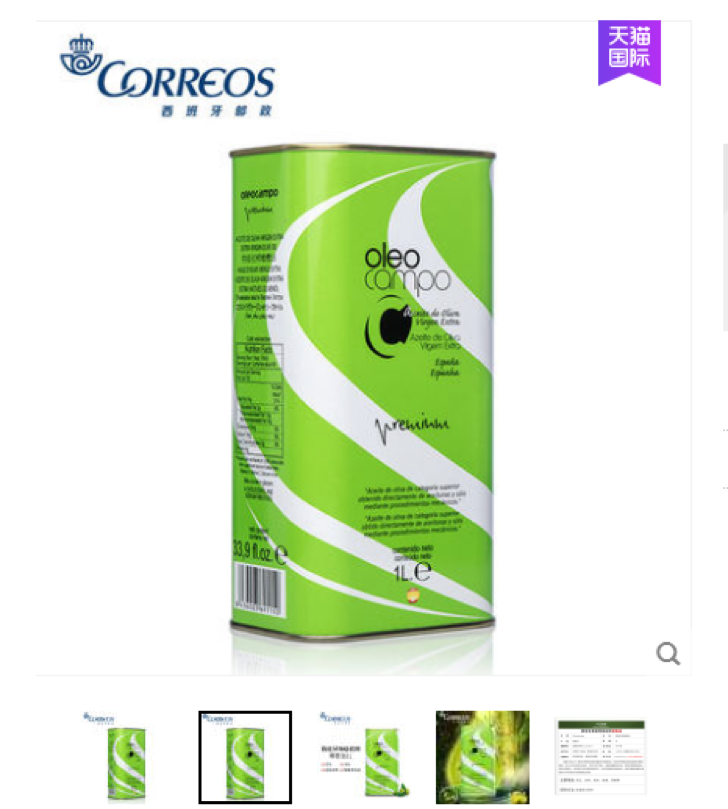 Then, we started chatting with the customer service to ask for more details of this product. The shop sales replied us immediately. He told us the Correos cross-border shop has a local office in Hangzhou, China, however, all the products are in Spain and will be shipped directly from Spain to China. He also told us that lead time is within 3 days and the delivery time is around 7-14 days depending on various factors such as weather, traffic etc.
Then, we started chatting with the customer service to ask for more details of this product. The shop sales replied us immediately. He told us the Correos cross-border shop has a local office in Hangzhou, China, however, all the products are in Spain and will be shipped directly from Spain to China. He also told us that lead time is within 3 days and the delivery time is around 7-14 days depending on various factors such as weather, traffic etc.
After all, we still decided to purchase this product and decided to pay and check out. There is personal cross-border purchase quota. We advise you to check it in here http://ceb2pub.chinaport.gov.cn/limit/outIndex before you make any purchases. Then, the buyer required us to submit a scanned copy of our ID, which will be used in the customs to clear the goods at the border.
Due to the long shipping distance, the shop does not take return merchandise. For testing, we finished payment and received a tracking number, which we can use to track our package online. For our order, we found out that the lead time is 2 days. After more than one week’s waiting, we finally received our olive oil 10 days after departure. Compared to our previous shopping experience on Tmall domestic, it feels slow but still within the time range they promised.
 Unfortunately, our products exterior package is a little bit deformed probably due to the cushion put inside the package box is not enough. We sent a complaint to the customer service of Correos cross-border shop immediately.They were also sorry for this and decided to compensate 20 RMB to us.
Unfortunately, our products exterior package is a little bit deformed probably due to the cushion put inside the package box is not enough. We sent a complaint to the customer service of Correos cross-border shop immediately.They were also sorry for this and decided to compensate 20 RMB to us.
In general, we have a very satisfying purchase experience on Correos shop on Tmall global except for the relatively long waiting time.
5 Bugs To Avoid When Doing E-Commerce In China
Have you ever tried to build a new overseas brand and fail in your attempt? In any approach to China, foreign brands often make some common mistakes when trying to sell their products in China mainland. Although such misconceptions are not exclusive to online environment, we will focus on those that particularly affect your approach to e-commerce in China. China is already the world’s first e-commerce market.
Are you going to miss its enormous potential?
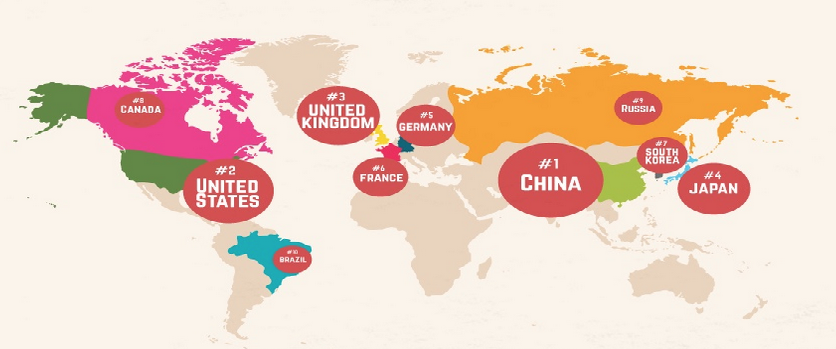
First bug: China is mobile, and you better record it
It is not the first time we tell you this, and for sure it won´t be the last. As we mention before in our article “How to Take Advantage of the Latest Ecommerce Revolution?”, Ecommerce has been a great revolution for both companies and customers.
Nowadays, Chinese prefer to use their mobile devices rather than their laptops and according to the new trend, companies have already starting to adapt themselves to portable devices. Moreover, those companies using U-commerce are focused on improving the customer experience through customizing and navigation created in cooperation with the User.
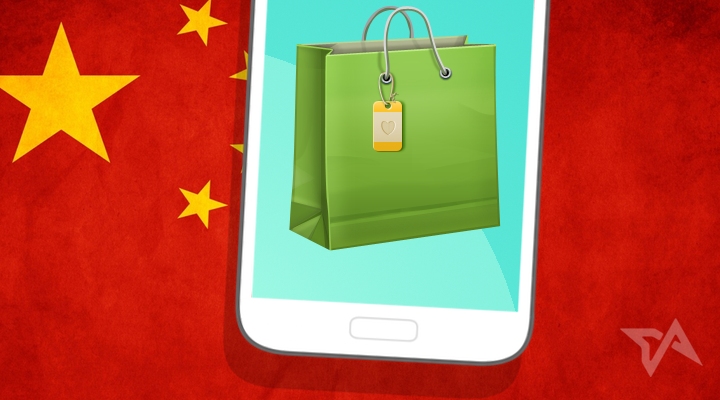
Second bug: E-commerce may be an asset in your country, but in China is irreplaceable
We cannot fail to mention Frank Lavin, CEO of Export Now, when he says,
“In China, Ecommerce is the cake.”
This may mean that you will need to adapt your business to the new environment. Do not expect it to be China who suits you, this does not work this way.
Remember that whoever hits first, hits twice. Embrace e-commerce as the enabler of your business it is, and take advantage of the immense benefits that electronic commerce can bring to your company to start selling around the World!
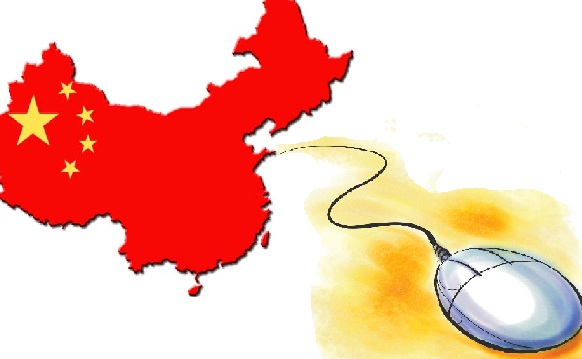
Third bug: Social Media is there to stay. Register your account and start moving!
Surely you’ve never heard the words Baidu, WeChat and Weibo… and let us tell you that you have a huge problem in China.
Not only around the 93% of the online searches in China are done in their own search engines –Have you ever heard Google does not work in China?– but also about a 68% of the customers take a look on the official Social Media account before buying.
Do not miss the opportunity to have a voice in that huge chicken coop is the network, start developing a tailored communication strategy for your brand and gain your piece of the cake!

Fourth bug: Domestic and lazy thinkers, or how the triumph from a day doesn’t make it daily
Do you think you will keep doing in China pretty much the same things you were doing before and as a result you will achieve success?
A basic rule you should never forget again is, no matter the experience and the many different markets in which you have entered before, is that new horizons always implies a new starting on your understanding of the target, so we definitely encourage you to start a market analysis.
Will your brand be competitive in China?
Do you offer something different regarding your competitors?
Is there a suitable market niche in the country ?
These and a thousand more questions require a prior discussion, keeping in mind that China should not be underestimated: the country enjoys some peculiarities you definitely must know before starting your landing.
We strongly recommend you seek assistance from professionals focused on the Chinese market, in order to enhance your chances of success in the country.

Fifth buf: Do not try to do everything by yourself, ask for advice
We are not tired of saying it, and will do so again: China is not a flat road. Do not try to embark on this mission unaccompanied, but pick very well with whom.
Look for complementary partners interested in joining forces, go to Government agencies dedicated to external actions and internationalization and definitely search for specialized agencies in the country to start outsourcing some tasks.

Already in search of a consulting expert in digital marketing and e-commerce? You have come to the right place.

Infographic: 10 Things You Need To Know To Build a Chinese Website
A picture is worth a thousand words
After the great success achieved by our two articles 10 Things You Need To Know To Build a Chinese Website (I) (II), in the team we have thought it would be a good idea to summarize and turn them into an infographic.
We hope you enjoy it as much as we enjoyed its elaboration 🙂
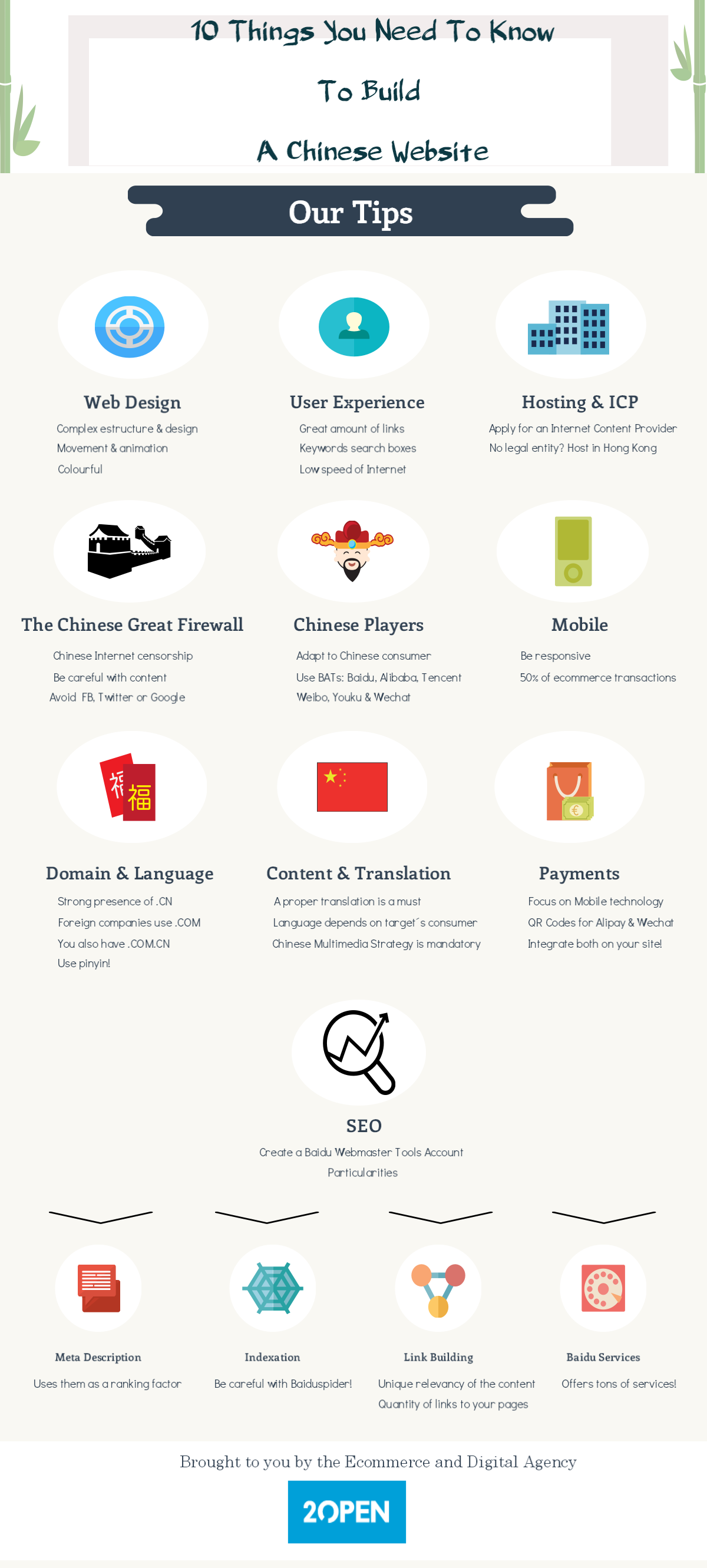
Are you looking for a digital marketing and ecommerce agency?
Visit us. Let´s have a talk!
How to Sell B2B Online in China
Last week we were in an event in Valencia organized by our partner, the Valencia Chamber of Commerce, in which we shared our knowledge about the B2B online business development in China in front of a full auditorium.
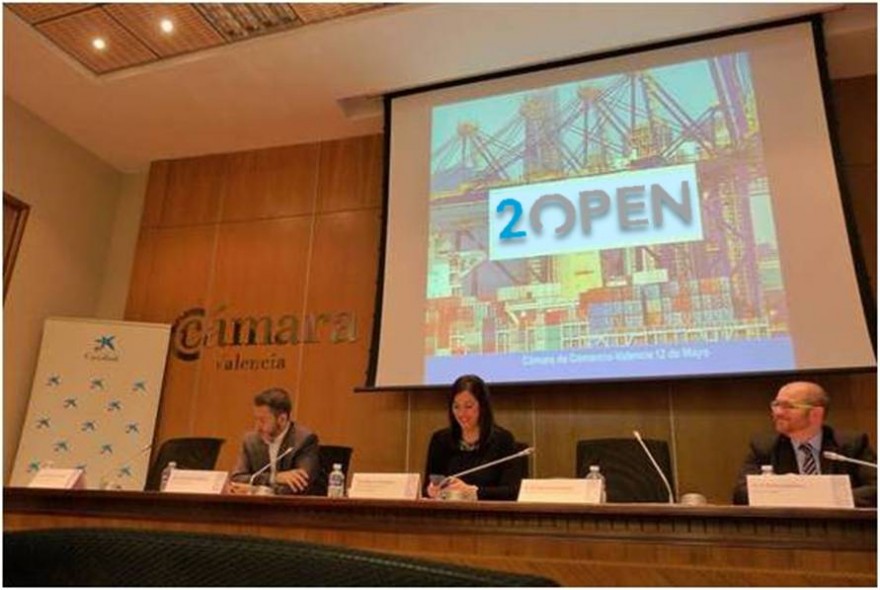
We were glad to share the “stage” with 2 of our best clients:
– Amvos Consulting: leading digital marketing agency in Europe and South America
– SoloStocks: best B2B online platform in Spain currently present in over 12 countries in Europe and South America
And that is what we talked about:
– WHICH ARE THE MAIN ONLINE B2B PLATFORMS IN CHINA?
As we can see in the top image chart, the clear winner in the B2B Chinese market is Alibaba with its domestic platform 1688.com which absorbs 37.78% of the market share as per April 2016, followed far behind by Global Sources (5.45%), HC360 (3.92%), Made-in-China (2.23%) and DHGate (1.77%).
– Alibaba.com/1688.com: Alibaba.com is the leading platform for cross-border wholesale trade, serving millions of buyers and suppliers around the globe and 1688.com is the main B2B marketplace for domestic China trade among small and medium enterprises.
– Global Sources: It is a leading B2B media company and a primary facilitator of trade with Greater China. More than 1 million international buyers, including 95 of the world’s top 100 retailers, use these services to obtain product and company information to help them source more profitably from overseas supply markets and generate sales leads and win orders from buyers in more than 240 countries and territories.
– HC360: is the third most important domestic B2B e-commerce operator in the People’s Republic of China. With its professional information services and advanced internet technologies, it has established a reliable demand and supply platform for SMEs, and has been providing them with complete business solutions over the past 22 year.
– Made-in-China: was developed and is operated by Focus Technology Co., Ltd. Focus Technology, is a world leading B2B portal, specializing in bridging the gap between global buyers and quality Chinese suppliers.
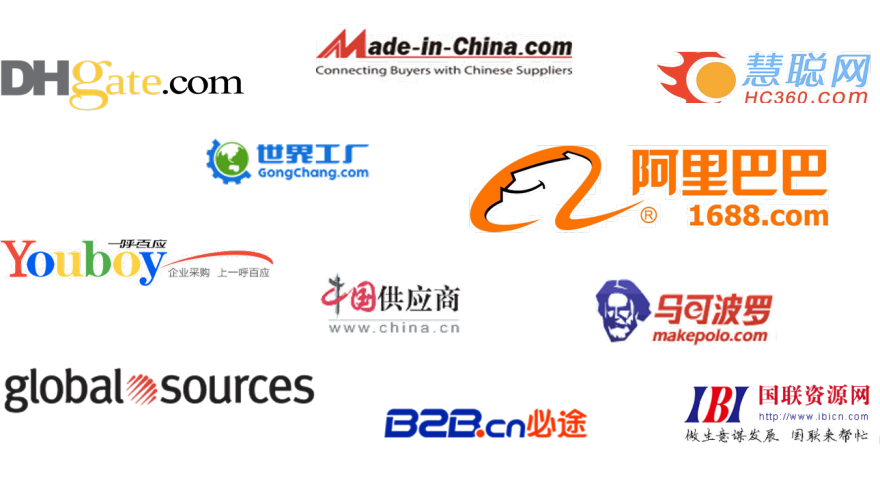
Since China’s policy of reform and economic openness, the B2B traditional model unlocked unprecedented levels of growth and development. With the Internet booming and the transition of trade models taking place, most industries have enrolled in the online B2B revolution to develop their brand. For this reason, hundreds and hundreds of new B2B platforms are born trying to differentiate from each other and creating that way an unparalleled war. And we see new attempts to get to the top of this pyramid, day in and day out, as they all want to get a piece of the huge cake.
– BUT, WITH SO MANY OPTIONS… HOW CAN I CHOOSE THE RIGHT PLATFORM?
We list for you the key factors that should be taken into account in order to select the best platform for your brand to sell your products in a business-to-business model in China:
– Establishments costs: Lower implementation costs through simple installation and integration and unproblematic expansion options. The vast majority of wholesale online trading platforms in China are “free” to use. You can create your own shop and list your products. That way you have your own B2B storefront in China; but how will your products get noticed within the others? All these places provide different visibility packages. Call it gold member, golden supplier or whatever other name you can imagine; the important thing here is to compare these packages and what is exactly what they offer.
– Volume: What is the number of suppliers and competitors? What is the traffic volume generated in the platform? In this area, 1688.com is the clear winner from both sides. Anyway, there are also other vertical platforms that might be worth checking.
– Chinese partner: In order to create a shop and list your products in any Chinese domestic B2B platform, you will need to go hand in hand with a Chinese partner as you cannot use your foreign business licence to sell products within greater China. Here it appears the classic dilemma: Chinese partners are usually very opaque and don’t like to share any kind of information. 2 Open, as a Chinese and Spanish company, can be the right Chinese partner with modern European-style management and creates a totally transparent relationship with its customers. We want to succeed with you and not the other way around.
– Promotional tools: It is important to analyze which actions can be done in order to get more traffic to your shop. The most of them offer performance marketing actions in a CPC or CPM model, both for keyword optimization and display actions. The prices are usually high and a study should be done to assure that the ROI is the right one.
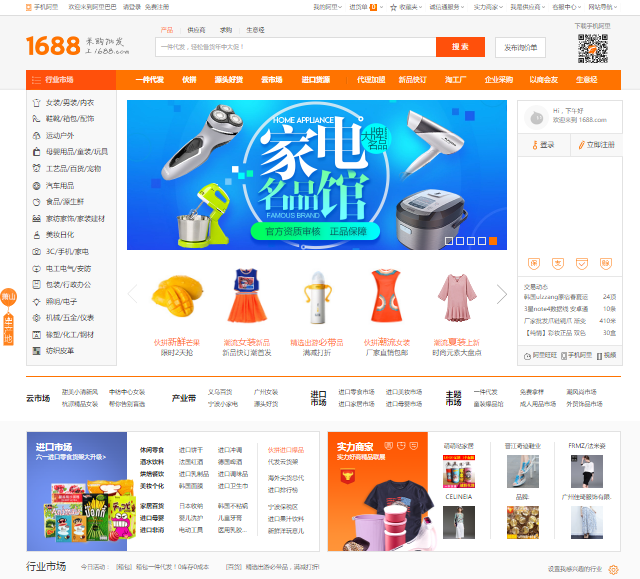
1688.com Homepage
In 2 Open, we usually recommend to do a market research that can lead us to take the best informed decisions: channel/s, range of prices, target audience, marketing budget and promotional efforts, potential return of investment, etc.
In another post we will show you how to optimize traffic within 1688.com to obtain more leads, so keep checking our blog and contact us if you have any questions. 2 Open can help you succeed in the Chinese B2B online world!
L’Oreal Digital Marketing Campaign in China
In the first half of 2015, L’Oreal’s financial statement reported revenues of 12.82 billion euros worldwide. In comparison with 2014, there was an increase of 14.7%, which is the fastest growth that the company has had in the past 20 years. Its digital marketing campaign was not the exception, with an outstanding 40% increase in online sales, exceeding 1 billion euros; it represented 5% of the company’s total turnover strengthening its position in the online market.
Nowadays, in the cosmetic & beauty industry, 70% of customers search products online before they actually buy them, which means that social media must play a big role in this. Why? You might be wondering, well, the importance of knowing consumer’s needs and preferences enables companies to come up with tailored ads and maximize their marketing budget. Many industries have transitioned from the classic marketing model into its modern version to further understand consumers and optimize results.
It seems that the upcoming era is digital, the society now is constantly connected with their mobile phones, and people are interacting on social media all the time. Most Chinese people love to share moments of their daily life via Weibo or Wechat, these social mobile applications gather a lot of Chinese young people who are potential online buyers, this is one of the main reasons why this new consumption model results so profitable.
Taking all of this into account, L’Oreal, the global beauty brand, keeps track of trends and maintains strong competence in the Chinese online market. The business credo for the marketing industry “where are the consumers, where are we” is practiced well by L’Oreal. In fact, in the digital marketing revolution, L’Oreal is not only expanding its e-commerce channels, they also apply a complete strategy to digital marketing.
All the product and services have to be digitalized
For instance, on the CES conference in Las Vegas, L’Oreal released a patch for sun-induced skin damage – My UV Patch, helps users track real-time ultraviolet exposure damage on the skin with the help of an App. In addition, L’Oreal has also launched a mobile App called Makeup Genius. The App can help users find their own appropriate makeup. Most Chinese people are shy and they do not dare to try exaggerated makeup, with this App users can try hundreds of makeup options and share on various social platforms. In the future, L’Oreal will try to launch more service-oriented App.
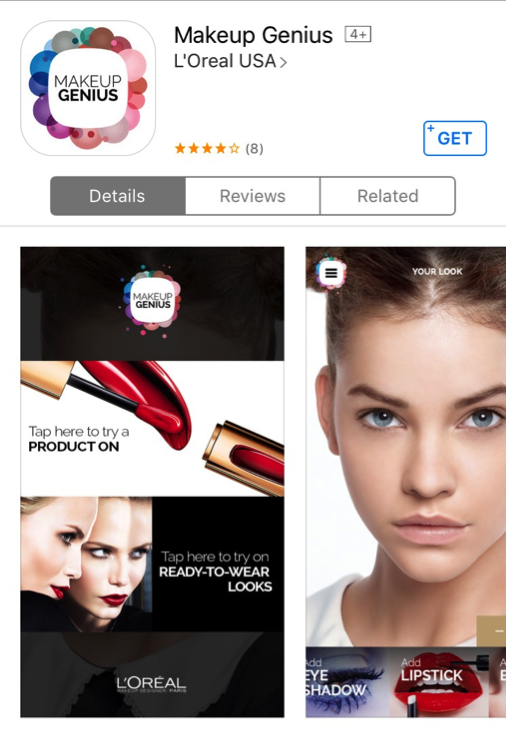
-L’Oreal APP for IOS
Digital involvement into every step of decision-making
In the buying decision process, customers experience 4 steps: identifying, considering, purchasing, and sharing. L’Oreal gets involved in every step of the process. For brand awareness, they launched a video advertisement on the entire media platform of Weibo and Wechat. For the decision-making stage they issued a series of makeup tutorial videos on Youku and finally let the users use social media to share their purchasing experience. With this, the entire consumer decision-making process is digitized.
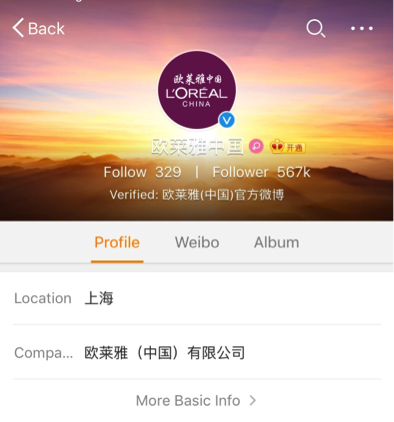
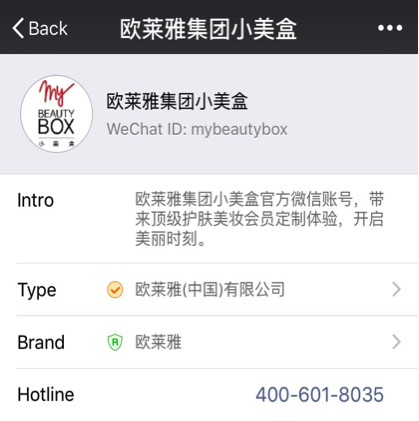
-L’Oreal official account on Weibo and Wechat
Take this case for example, in the 2015 Cannes Film Festival; L’Oreal launched a video advertisement on Wechat, where L’Oreal’s stars would post their pictures and voice message saying “I am in Cannes, will you come? ” and a link to L’Oreal’s e-commerce page. Through this event L’Oreal attracted a lot of fans and potential customers, and the brand’s social influence was digitalized.

-L’Oreal Cannes Event on Wechat
All brands on digital platforms
Based on the first two points, L’Oreal Group including Lancome, Maybelline, L’Oreal Paris and other brands, try to position themselves, as much as possible, on various digital platforms, that is, “where are the consumers, where are we”. Since, nowadays, almost all of the customers are online, L’Oreal has to be searched and discussed as much as possible by customers in order to gain more popularity in the digital world.
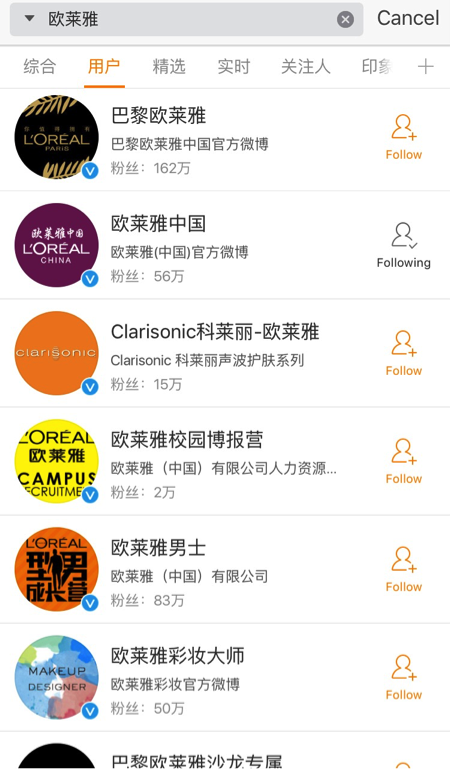
-L’Oreal brands on Weibo
When analyzing L’Oreal’s digital marketing strategy, it is worth noticing that this giant enterprise takes digital marketing as a key element of responding to the rising demand among beauty consumers. The O2O (online-to-offline) model gradually drives the enterprise transforming it into a new business model. Digital marketing could not only develop a new market but also help to create a new CRM (Customer Relationship Management) system for other companies. We believe in the future and Chinese digital marketing will become more and more important in the following years.
Have you learned Chinese yet?
If you have any questions or require any information about our services, please do not hesitate in contacting us, our group of specialists will happily assist you.
This article was edited by Andres Arroyo Olson from 2Open.
All you need to know about Ecommerce in China
The first quarter of 2016 is already behind us, are you still figuring out how to start your e-commerce business in China? For some of us e-commerce still feels like a new business model, however, China has long passed this stage, various data suggests that it has already become a traditional industry in China. Traditional or not, let us sort out the current e-commerce situation and forecast its areas of development.
Ecommerce is on its way to become a traditional industry in China
Ten years ago the ecommerce in China was brand new. Taobao was the most popular C2C online platform. At that time, people who had the technical skills and knowledge of search engines could get over 80% of return of investment on a Taobao shop. Nowadays, Taobao offers more than 1 billion products, has over 10 million sellers, and around 320 million active users. These huge numbers only come from one of Alibaba Group’s marketplace so you might be able to reckon the whole picture. After ten years high-speed development, China’s ecommerce is not a new industry anymore; its development is now as mature as the real estate or the catering industry.
Traditional industry vs Ecommerce
In recent years, the traditional industry has been strongly affected by the online market, some companies have managed to adapt their business to the new online scene, but some have failed at this task. This trend of transitioning from offline to online businesses will speed up this year, and although there are currently more traditional businesses than online ones, online businesses will eventually catch up.
It seems that both business models cannot co-exist, however, if the resourceful traditional industry would explore Chinese digital marketing and ecommerce solutions, they would be able to achieve better results with half the effort.
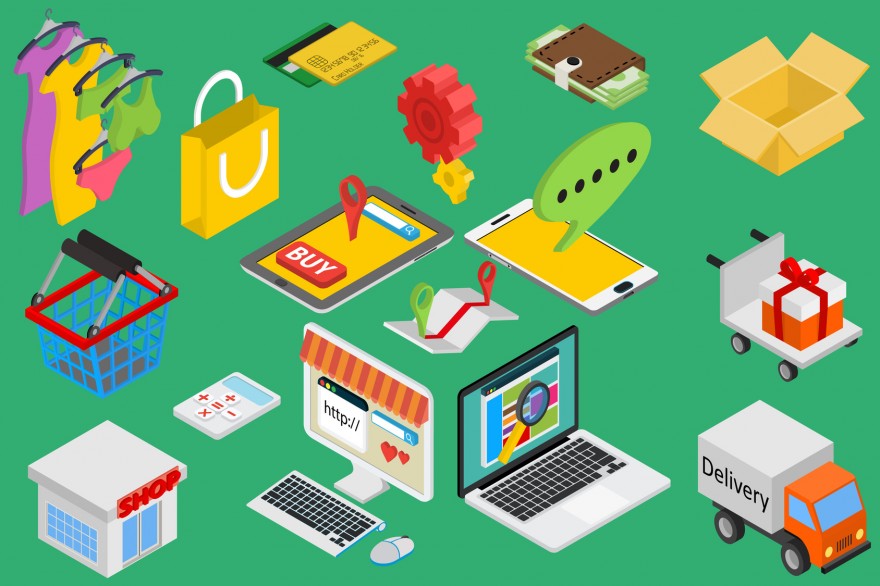
Develop a 020 (Online-to-Offline) business model
In coming years, online retailing will be a fully integrated part of the market, it will help companies grow, and sale more efficiently. On the other hand, they will also have to implement the offline part of it, a successful integration of a good O2O business will, without a doubt, thrive in market. Suning began handling deliveries for Alibaba, in order to push Tmall Supermarket into the massive market, and Jingdong is promoting Jingdong Daojia, all the actions from the leading Ecommerce companies indicate that the O2O model is inevitable to come.
Ecommerce in the rural areas
Last year ecommerce in rural areas had a rapid development. Alibaba made a long-term project to promote online shopping in order to expand its business coverage. The central government formally issued a document to help the promotion of rural ecommerce and facilitate the integration of online and offline. Alibaba, Jingdong and Suning are also pushing the development of ecommerce in rural areas so we should expect an huge increase this year.
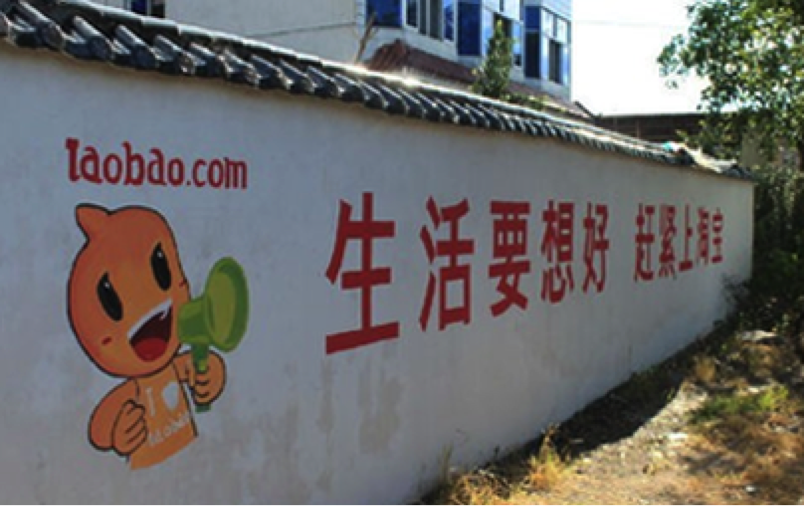
Great development of CBEC (cross-border ecommerce)
Over the past 2 years, CBEC has become one of the most popular business models in China. It has given import business a lot of opportunities; moreover, since the Chinese middle class has grown considerably (first place in the world with over 100 million), it turns out to be a very profitable business. The main consumers are people between the ages of 30-40 and have great acceptance for foreign products, this will bring a lot of overseas ecommerce companies into the Chinese market.
Here at 2Open we specialize in ecommerce and digital marketing. Our goal is to understand our clients business needs in order to provide the best possible services. If you have any questions or require any information about our services, please do not hesitate in contacting us, our group of specialists will happily assist you.
This article was edited by Andres Arroyo Olson from 2Open.
2Open with Chinese E-commerce companies and Spanish suppliers
In 2 Open we like to be updated. We are constantly attending events that are related to our business scope (Digital marketing and E-commerce in China) so that we can have all the relevant information on the current situation in order to provide our customers with the best posible services.
In this case, 2Open attended a networking event in Spain that involved Chinese e-commerce companies and Spanish suppliers. The topics covered in the event were related to E-commerce and Digital marketing strategies, more specifically, to the different ways brands have to adjust their products so as to sell them through e-commerce platforms with particular emphasis on the booming of Chinese cross-border e-commerce, its advantages ,and the new fiscal legislation that will be implemented starting on April 8th.
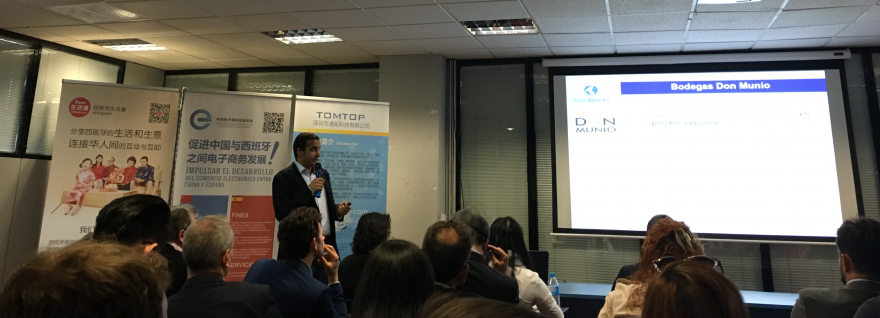
Apart from the information exchange, we were glad to find out that some of our clients (SoloStocks, Amvos, Ecoficus) also attended the event. We also had the chance to talk with other brands who are interested in selling their products online in China and/or doing Digital Marketing to improve their performance.

All in all, it was a pleasant event filled with interesting people finding new opportunities. If you want to know how we can help you to maximize your Sales & Marketing efforts in the Asian giant, please do not hesitate in contacting us. We will be more than happy to talk about your current goals and situation and provide you with the best solutions for your business needs.

This article was edited by Andres Arroyo Olson from 2Open.
2Open on Spanish radio: Business in China?
Recently, we were invited to a local Spanish radio program called “Onda Cero” in Cáceres City. Vicente Pozas, the host of the show, asked some interesting questions to our colleague David González regarding Digital Business in China. For a lot of people in Europe, China is a far away land with a different culture, different people, and different ways to make business. People are getting interested in China, it has had a huge economical growth in the past few years and interest of foreigners has grown accordingly.
The talk mainly focused on China’s development in certain technological areas, the business opportunities it offers, and the considerations that have to be taken into account if one should intent to do business in China. David González talked about the differences in population of major cities in both countries and the way e-commerce in China has surpassed any other country in the world. He also stressed the way the Chinese middle-class people have gained more purchasing power and how all of this can be translated into a broader potential market for any business.

After throwing out some interesting figures about China, he talked about failure and success cases that foreign companies have had when trying to enter the Chinese market, the limitations and the room for mistakes that exists in the country, and the complexity of making business with a Chinese businessperson.
Although the talk focused mainly on China and the way they make business, David got the opportunity to talk about 2Open, our business values, and the way we carry out every project with passion and commitment. The complexity and the obstacles that a business in China could present and how a company like 2Open can make the whole process a lot simpler and successful.
Here is the audio of the interview with David González on the Spanish radio show “Onda Cero”, sadly the audio file is only available in Spanish, but if you have a particular interest on it please leave a comment and we will post an English translation of it.
This article was edited by Andres Arroyo Olson from 2Open.
General situation of fake products in China
It is common knowledge that fake products are everywhere in China, from large cities like Shanghai to remote small towns in Western China and, not surprisingly, online markets are not the exception, even though there is a lack of acknowledgment from their part, it seems that fake products are a part of China whether we like it or not.
The online market giant Alibaba group was sued in the U.S. regarding fake products regulations. According to Jack Ma, the founder of Alibaba, his company spends over one hundred million RMB each year on actions against counterfeit goods. The situation has improved considerately over the past few years, some shops have even been closed down due to this sort of issues. 2Open, as a company who deals everyday with marketing and e-commerce, is used to supervise online sales in China for many clients and the number of shops selling a certain brand with an unbelievably lower price has decreased noticeably in comparison with last year. There is still a lot of work to do, but exactly what types of products are more likely to be faked?

SHENZHEN, CHINA – AUGUST 04: (CHINA OUT) Police officers deal with fake brand-name items at a shop on August 4, 2014 in Shenzhen, China. Shenzhen police seized a large number of fake brand-name items, like Hermes, Gucci, Rolex, Chanel, Prada, Miumiu, and so on, worth 5,000,000 yuan (810,000 USD). (Photo by ChinaFotoPress/ChinaFotoPress via Getty Images)
The most common faked goods are well-known brands, such as Nike, Adidas, Louis Vuitton, Gucci, etc. If a new brand wants to enter China, it will seldom encounter issues regarding fake products. In this situation, just a small budget is needed for online marketing which could be used for setting up a shop on www.taobao.com, putting online Ads or even buying key words on search engines, all of which can have a positive effect and lead buyers to get to know your brand. Since you are the shop owner and the only supplier at this moment, the buyer will come to you directly; no other shops will take potential buyers from you.
Let us say your brand successfully entered the Chinese market, perhaps one day someone will start faking and selling your products, but how would this affect your brand? Some argue that this is just indicator of the success and popularity that your product has had in the Chinese market and that there are no reasons to be worried. Experts agree that there is plenty of space in the market for both parties; a lot of people prefer to buy original products for a higher price than fake ones for a lower one. Counterfeiting could be considered a promotion activity for a brand, after all, if you are confident about your products, put money into marketing, let people know about it, you will get money back, no doubts about it, but how is the future looking for fake goods?
According to Xinhuanet, the General Administration of Quality Supervision, Inspection and Quarantine (AQSIQ) has gathered around four giant e-commerce platforms: Alibaba, Jingdong, Suning, Yihaodian to sign a cooperation agreement which will help to release inspection results of the fulfillment of product quality commitment. AQSIQ has developed a search platform of inspection of product quality, which will be put online for public use around March 15, 2016.

Fake products problems continue to plague the development of e-commerce. Jingdong and Alibaba have been fighting a war these days, accusing each other of not making efforts to end the fake goods. The offline scene does not look very bright either, street shops are now going through a rough time these days, people are getting used to purchase everything online, from groceries to electronics, during the singles day alone (Nov. 11, 2015) Taobao reached a sales volume of 91,217,017,615 RMB.
It is an Internet Era, no doubt about it, and counterfeit goods should not represent any obstacle if one should intent entering the Chinese market. A smart digital marketing strategy, like the one 2Open offers, can get your brand the recognition it deserves.
Let us know what you think in the comments below.
This article was edited by Andres Arroyo from 2Open.


